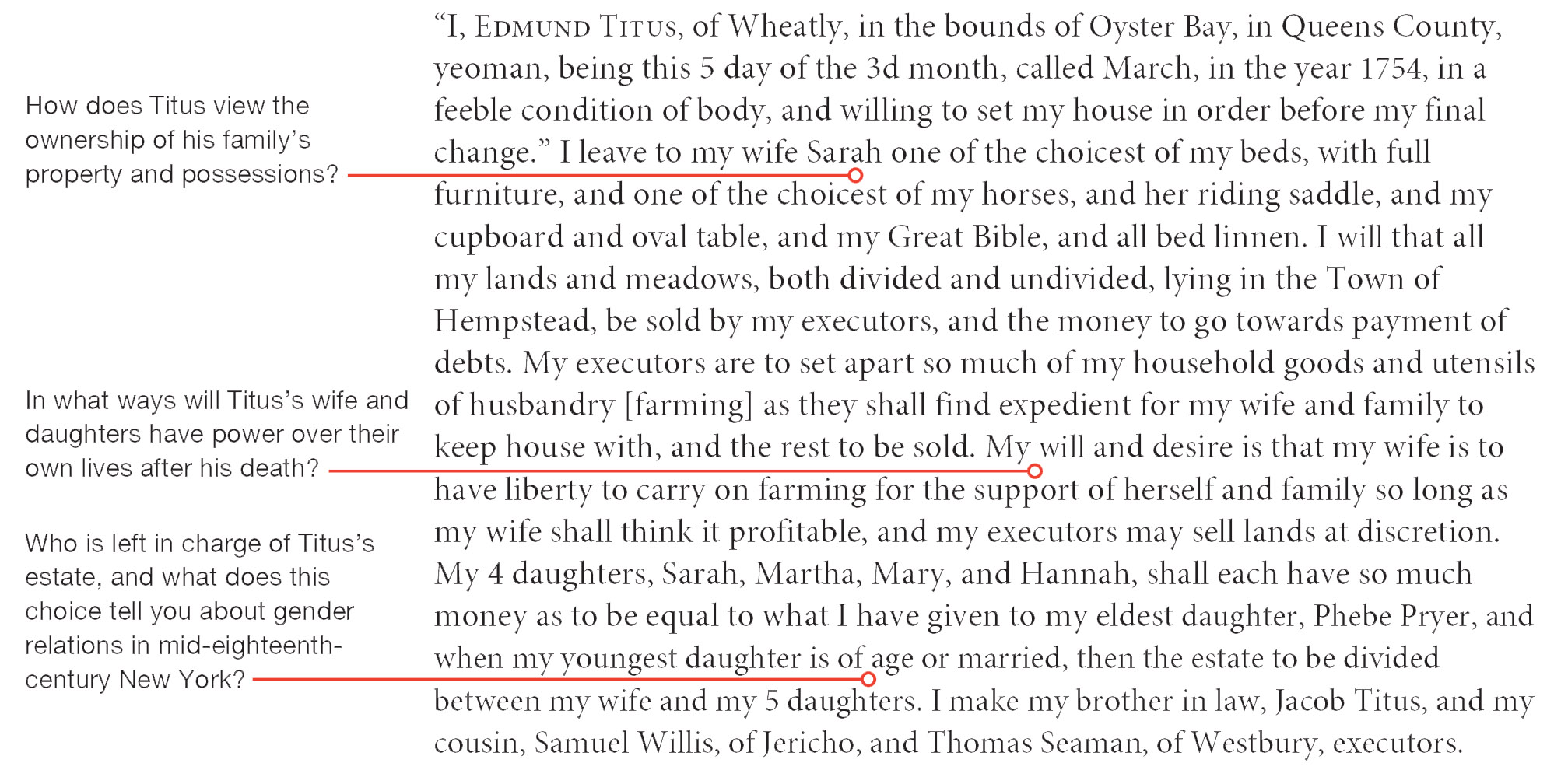Exploring American Histories: Printed Page 103
Document 4.3
Will of Edmund Titus, Oyster Bay, New York, 1754
The treatment of widows indicates the limited rights that colonial women held by the mid-eighteenth century. Wills provide detailed examples of wives’ lack of control over property, even after the death of their husbands. Instead of directly inheriting land, houses, and goods, widows were often placed under the legal protection (and control) of male relatives, whose decisions would regulate their finances and daily lives. The will of New York farmer Edmund Titus shows the customary arrangements of the era.
Explore

Source: “Abstracts of Wills on File in the Surrogate’s Office, City of New York. Vol. V 1754–1760,” in Collections of the New-York Historical Society for the Year 1896 (New York: New-York Historical Society, 1897), 30–31.
Question
How does Titus view the ownership of his family’s property and possessions?
Question
In what ways will Titus’s wife and daughters have power over their own lives after his death?
Question
Who is left in charge of Titus’s estate, and what does this choice tell you about gender relations in mid-eighteenth-century New York?
Put It in Context
Question
What does Edmund Titus’s will indicate about the lifestyle and the gender and generational relations within middling farm families?